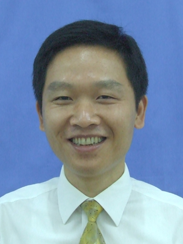 |
Professor, Aero-Power Sci-tech Center IEEE Fellow Vice Dean, College of Automation EngineeringNanjing University of Aeronautics and Astronautics, China |
Xinbo Ruan received the B.S. and Ph.D. degrees in electrical engineering from Nanjing University of Aeronautics and Astronautics (NUAA), Nanjing, China, in 1991 and 1996, respectively.
In 1996, he joined the College of Automation Engineering, NUAA, where he became a Professor in 2002. Since 2008 to 2011, he was also with the College of Electrical and Electronic Engineering, Huazhong University of Science and Technology, China. He is the author or co-author of seven books and more than 200 technical papers published in journals and conferences. His main research interests include soft-switching power electronics converters, power electronics system integration and renewable energy generation system.
From 2005 to 2013, he served as Vice President of the China Power Supply Society. Currently, he serves as an Associate Editor for the IEEE Transactions on Industrial Electronics, the IEEE Journal of Emerging and Selected Topics on Power Electronics, the IEEE Transactions on Power Electronics and the IEEE Transactions on Circuits and Systems-II. He was elevated to the IEEE Fellow in 2015.
Cascaded DC-DC Converter Systems: Stability Criteria and Solutions
The distributed power system (DPS) has been used widely in such applications as space stations, aircraft, network servers, telecommunication power systems, and renewable energy generation system, thanks to its flexile system configuration, high-efficiency energy conversion, and high-density power delivery capability. Cascading converters is a typical connection style of the subsystems in DPS. This presentation will present the stability criteria and solutions for the cascaded dc-dc converter systems.
Since the cascaded dc-dc converter systems have various operating modes, the constituent dc-dc converters cannot simply be regarded as source converters or load converters. So, this presentation firstly classify any converter in a cascaded dc-dc converter system as either a bus voltage controlled converter (BVCC) or a bus current controlled converter (BCCC). As a result, a cascaded dc-dc converter system can be represented in a general form regardless of its structure and operating mode. Then, the minor loop gain of the standard cascaded dc-dc converter system is derived precisely using a two-port small signal model. Application of the Nyquist criterion on the derived minor loop gain gives the stability requirement for the cascaded dc-dc converter system. This proposed criterion is applicable to cascaded dc-dc converter systems regardless of the control method and the connection configuration. After that, the virtual-impedance-based input impedance shaping methods for the BCCC is proposed to improve the stability of the cascaded systems. Furthermore, the concept of impedance adaptor is proposed, which is connected in parallel with the intermediate dc bus. The impedance adaptor serves as an equivalent bus capacitor to reduce the output impedance of the BVCC, thus avoiding the intersection with the BCCC’s input impedance, and as a result, the cascaded system becomes stable. The impedance adaptor is realized by an adaptive active capacitor converter (AACC), and the emulated equivalent bus capacitor is adaptive with the output power of the cascaded system. Thus, the power loss of AACC is minimized and the dynamic response of the system is better than that of the system using a passive capacitor.